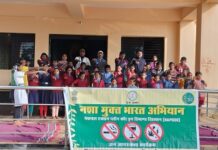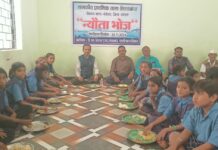Myanmar authorities took foreign diplomats and United Nations representatives on a tour Monday of conflict-torn northern Rakhine state, where a security crackdown has led to an exodus of more than 500,000 Rohingya Muslims.
Three groups of diplomats were taken to three different areas, said Ye Htut, district administrator of Maungdaw in Rakhine. He did not provide details on the diplomats’ nationalities.
Myanmar has come under international criticism for barring aid groups, journalists and other outsiders from independently traveling to the region to see the situation there. A guided visit for diplomats scheduled for last week was abruptly canceled.
More than half a million Rohingya have fled from the region to Bangladesh in just over a month, the largest refugee crisis to hit Asia in decades. The current exodus is in addition to hundreds of thousands of Rohingya who fled prior violence in Myanmar, where the Muslim ethnic group has faced decades of persecution and discrimination in the Buddhist-majority nation.
Bangladesh’s foreign minister said Monday that Myanmar “has made proposals for taking back Rohingya refugees.”
A.H. Mahmood Ali made the remarks after meeting in Bangladesh’s capital with a Myanmar delegation led by Kyaw Tint Swe, a minister in the State Counsellor’s Office.
Ali told reporters that the counties had agreed to form a joint working group to start work on repatriation.
“Both countries want to settle the issue peacefully,” he said.
It was unclear whether Myanmar would place restrictions on which refugees would be allowed to return home. Most Rohingya have been denied citizenship in Myanmar, although many families have lived in the country for generations.
The Myanmar delegation did not speak to the media.
“I see today’s development very positively, but we know Myanmar’s previous behavior when it comes to Rohingya and their repatriation,” said Delwar Hossain, a professor of international relations at Dhaka University. “Myanmar did not keep their word in the past, they stopped cooperating with Bangladesh for their repatriation.”
The latest violence began when a Rohingya insurgent group launched deadly attacks on security posts Aug. 25, prompting Myanmar’s military to launch “clearance operations.” Those fleeing have described indiscriminate attacks by security forces and Buddhist mobs. The government has blamed the Rohingya, saying they set fire to their own homes, but the U.N. and others accuse it of ethnic cleansing.
Local officials in Rakhine said Monday’s tour includes meetings with relatives of victims allegedly killed by militants during violence against Hindu, Mro and Daignets minority communities in Maungdaw township. In the morning, the diplomats were taken to Anaut Pyin village of Rathedaung township, a community of Rohingya Muslims who have not fled, said local police officer Moe Zaw.















